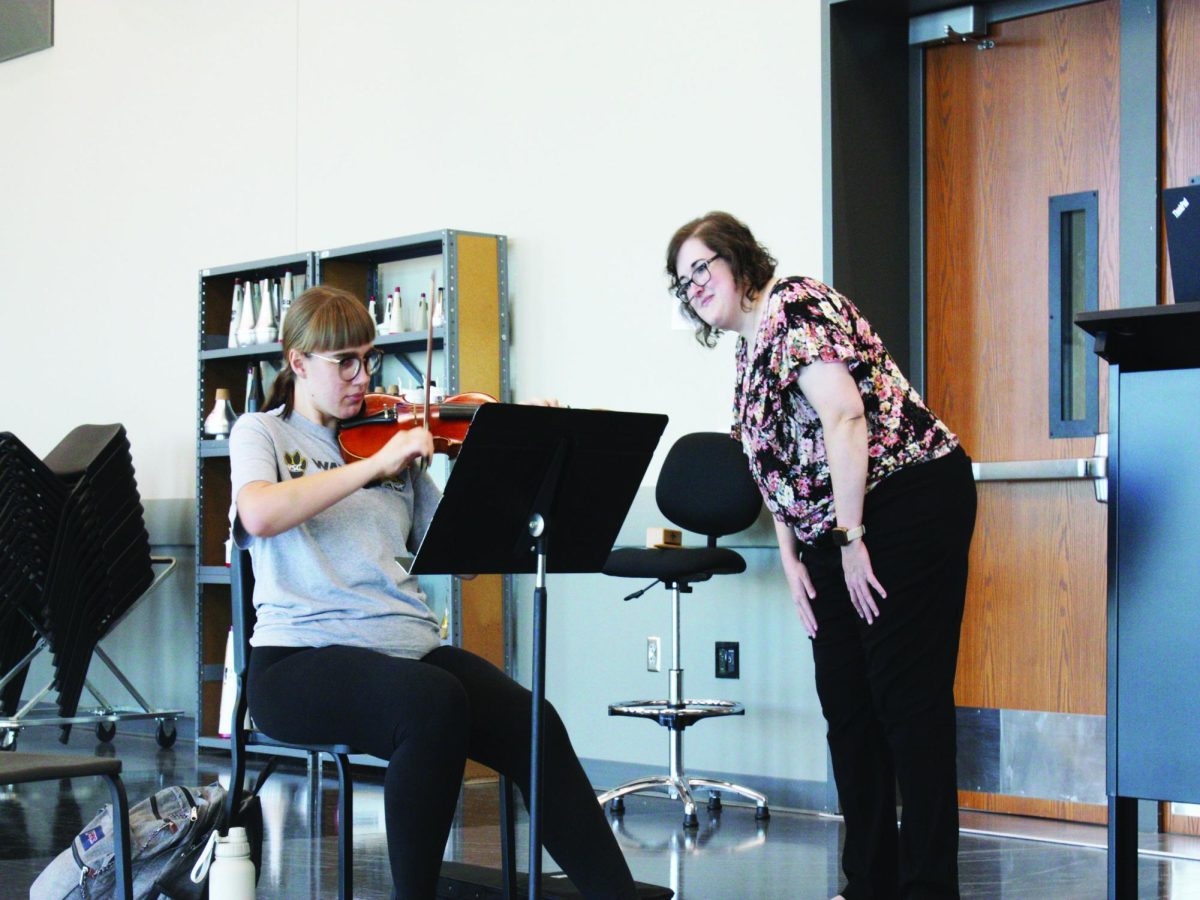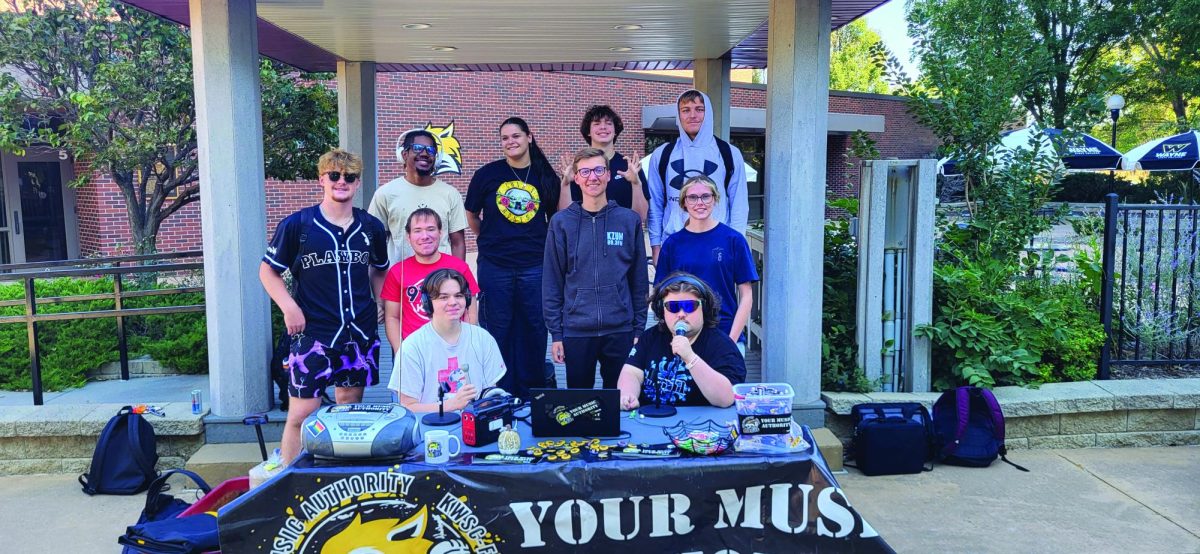Newcomb discusses gender in monthly colloquium
Language and literature department hosts faculty presentations
February 11, 2015
Gender is a performance that enforces stereotypical roles. This was the topic when the Department of Language and Literature held its first monthly faculty colloquium presentation on Wednesday, Jan. 28.
The speaker of this first colloquium was Dr. Lori Newcomb, who presented her paper,“The Respectable Spectacle: Subversion and Salvation in The Birdcage.”
“I think it’s only very fitting that this first talk is about drag queens,” Newcomb said.
The drag queens Newcomb was referring to are from the 1996 film “The Birdcage” starring Robin Williams and Nathan Lane.
Williams and Lane play a gay couple, Armand and Albert, who own a nightclub and play at being straight to impress the conservative parents of their son’s fiancée, Barbara. Albert, who performs as a drag queen at their nightclub, puts on the role of a conservative matron for their son (Val) and successfully convinces the stanch senator (Barbara’s father).
But Newcomb argued that the conservative parents were putting on more of a “drag” than their more unconventional counterparts, by harboring feelings of sexism and racism and only caring about their image. They put on a “respectability drag” for the world.
Newcomb presented that the “subversion” of Albert’s drag ultimately is the salvation of the senator and his family, when they have to put on drag themselves, literally to fool the media about their identities.
The message?
Gender is a performance. It is something that is taught and enforces stereotypical binary roles.
These well-argued points turned the Q and A conversation into a forum for the faculty to discuss the complexities of gender and sexual identities.
The small crowd concluded that gender, sex and sexual orientations were not all the same and cannot be put into two, four or any number of categories.
In this film, and in other forms, the entertainment and comic relief of drag is used to educate audiences about gay life.
“The late ‘90s were a huge advance [for gay rights], but there is always a backlash. We take two steps forward, and one step back,” Newcomb said.
Newcomb and the faculty members in attendance concluded that while sexuality has made great strides to be recognized through the courts, gender has a long ways to go.
To hear faculty present and discuss more literary and cultural issues, attend the next faculty colloquium on the last Wednesday every upcoming month.







